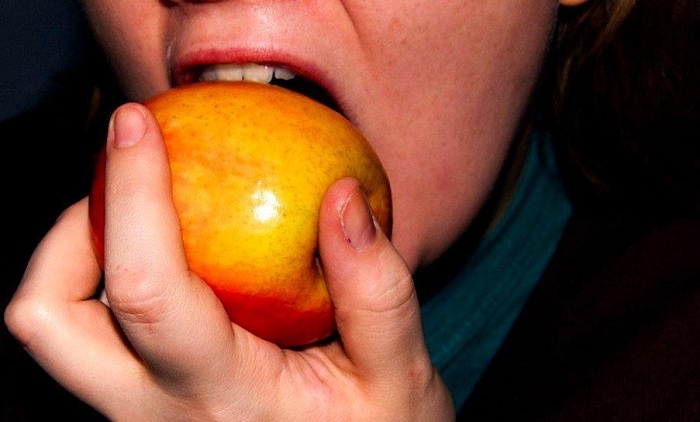Australian researchers found that women who ate fewer than three pieces of fruit a month took 50 per cent longer to conceive than women who ate fruit three or more times a month.
Junk food consumption was also analysed, and women who rarely ate fast food got pregnant a month quicker, on average than women who ate fast food four times a week or more.
While the intake of fruit and fast foods affected the time it took to get pregnant, the researchers found intake of green leafy vegetables or fish did not.
As parents are getting older, one in six couples trying to conceive now struggle to get pregnant and keeping a healthy weight and diet is a key way to improve chances, independent experts warned.
However they added there were also many myths about fertility, including the suggestion that fruit should be avoided.
The study, which is published in the journal Human Reproduction,saw 5,598 women questioned about their diet during their first antenatal visit.
READ MORE
Some want sex ed to teach girls how to get pregnant – and why not?
The women, who were from the UK, Ireland, Australia and New Zealand, had not had a baby before.
Among all the couples in the study, 468 (8 per cent) were classified as infertile (defined as taking longer than a year to conceive) and 2,204 (39 per cent) conceived within a month.
When researchers looked at the impact of diet on infertility, they found that in women with the lowest intake of fruit, the risk of infertility increased from 8 per cent to 12 per cent, and in those who ate fast food four or more times a week, the risk of infertility increased from 8 per cent to 16 per cent.
Professor Claire Roberts, of the University of Adelaide, who led the study, said: “These findings show that eating a good quality diet that includes fruit and minimising fast food consumption improves fertility and reduces the time it takes to get pregnant.”
Melanie McGrice, who was not involved with the study, said: “As a fertility dietician, I’m seeing more and more women who incorrectly think that they should be avoiding fruit in an effort to help them conceive.
“This study demonstrates that fruit consumption is not only safe, but beneficial for most women to optimise their fertility.
“Fruit is rich in antioxidants, vitamins and phytochemicals, and should not be lumped into the same basket as sugar and soft drinks.”
More about: health










-1745485667.jpg&h=190&w=280&zc=1&q=100)





































